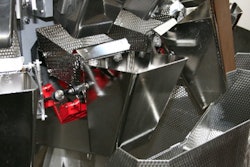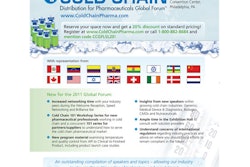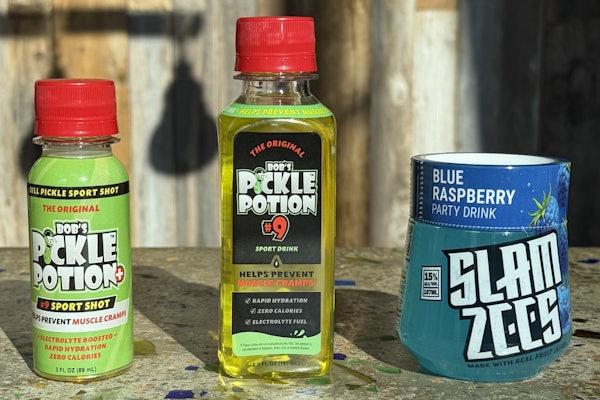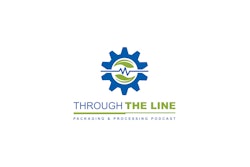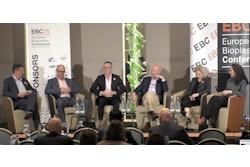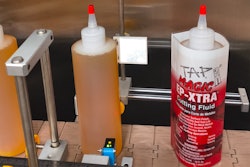The rPET processed at the Beaune plant is used in APPE’s production of food-grade PET preforms for a range of major beverage producers, most of which typically specify 25% post-consumer recycled content for their bottles. “The number of customers we have that use rPET is increasing year-on-year,” says APPE marketing manager Kinza Sutton, “and we expect to see this trend continue for the foreseeable future.”
Currently APPE’s expansion, which included investment in a new wash line (now the largest in Europe), a new extruder, and a new Solid State Polymerization (SSP) tower, allows the company to handle 46,000 tonnes of PCR PET, or the equivalent of 1.8 billion bottles. The post-consumer PET is sourced from France, Belgium, Germany, and Italy.
The additional resin output of 10,000 tonnes of rPET made possible through the expansion will produce 400 million bottles made from 100% rPET or 1.6 billion bottles with 25% rPET content. Data included in APPE’s Greener Package Awards entry indicates that the 10,000 tonnes of rPET reduces 3,470 tonnes of carbon equivalent, or 12,735 tonnes of CO2 equivalent, over the production and use of virgin resin. APPE’s full output capacity of 35,000 tonnes represents a reduction of 12,145 carbon equivalent, or 44,572 tonnes of CO2 equivalent.
“One-hundred percent of Beaune’s output goes into new bottles,” says APPE. “This extends the life of PET, as closed-loop recycling means it is recycled many times over.” To further reduce the footprint of the bottles it produces, APPE also built a preform manufacturing plant on the same site as the recycling facility, eliminating transportation impacts.
The challenge, as Sutton shared with Greener Package, is to source enough material for the operation. In today’s market, not only are packagers clamoring for greater recycled content in their packaging, but “demand for other applications, such as strapping, fibers, and sheeting, is also increasing significantly,” she says. “This means the growth of demand is currently outstripping supply
“The challenge is to improve the quality and overall rates of collection in order to satisfy this increasing demand.”





